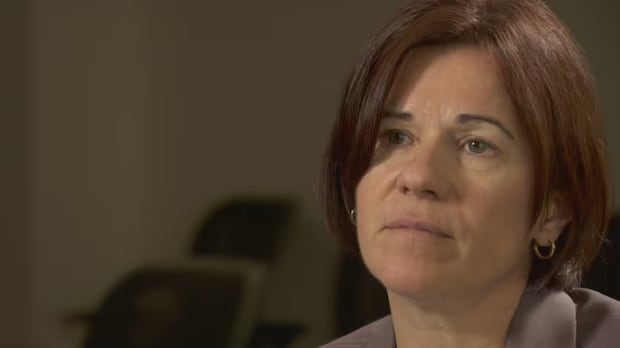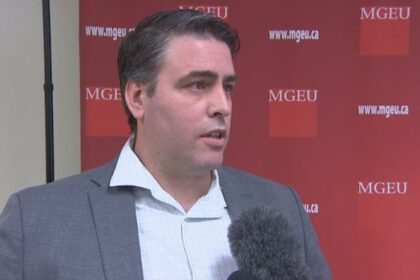New Brunswick·NewAs of 2026, the province will fund an additional eight seats at the Centre de formation médicale du Nouveau-Brunswick at the Université de Moncton.Province has said 8 new francophone medical school seats will be fundedJordan Gill · CBC News · Posted: Oct 10, 2025 5:00 AM EDT | Last Updated: 31 minutes agoDr. Natalie Banville says having those extra seats is ‘huge’ and will make a big difference for the number of francophone doctors at Vitalité Health Network. (Mike Heenan/CBC)The vice president of medical affairs at the Vitalité Health Network hopes a bump in the number of francophone medical school seats in New Brunswick will result in more French-speaking doctors choosing to stay in the province to practise.Last week, the province announced it would fund a further eight medical seats at the Centre de formation médicale du Nouveau-Brunswick at the Université de Moncton. Those new seats will be offered as of 2026.The province also announced that the number of francophone residency training seats would jump from 18 now to 26 by 2030.Dr. Natalie Banville said having those seats is “huge,” and will make a “big difference” for the number of Francophone doctors at Vitalité.She said medical students who train in the province tend to stay here after completing their education.’We also have some English patients, so our doctor needs to be bilingual,’ says Dr. Natalie Banville, the vice president of medical affairs at the Vitalité Health Network. (CBC)“Ninety per cent of those students come back and stay in the province,” Banville said. “When somebody from New Brunswick decides to establish in New Brunswick, five years later, 97 per cent of them are still here and are planning to finish their career here.”Trying to connect with out-of-province med studentsIn the past few years, Banville said Vitalité has made it a point to keep in touch with New Brunswickers studying at francophone medical schools in Quebec and around the world.But medical training is long, taking up to 10 years, and in that time many students make connections at school that keep them away from home for good.“Sometimes you’re going to meet somebody from somewhere else and that’s going to keep you there,” said Banville.“After 10 years in Montreal, Quebec and Ottawa, some have the tendency to stay there.”Last week the province announced it would fund a further eight medical seats at the Centre de formation médicale du Nouveau-Brunswick at the Université de Moncton. Those new seats will be offered as of next year. (Guy LeBlanc/Radio-Canada)With the province’s latest funding commitment, its total pledge for this type of training will come to about $77 million.“Investing in these programs gets us a step closer to ensuring every New Brunswicker has access to the care they need when they need it,” Health Minister John Dornan said in a statement on the province’s website.Dr. Nicole LeBlanc, director of the Centre de formation médicale du Nouveau-Brunswick, also praised the new funding. “This investment is more than numbers; it translates into tangible care for our communities and reflects a collective commitment to building a health system that is accessible, in French, and adapted to the needs of our population,” LeBlanc was quoted as saying. ‘Investing in these programs gets us a step closer to ensuring every New Brunswicker has access to the care they need when they need it,’ Health Minister John Dornan said in a statement. (Chad Ingraham / CBC News)It’s also not just francophone New Brunswickers who will benefit from the new medical seats, Vitalité’s vice president noted.“We also have some English patients, so our doctor needs to be bilingual,” said Banville.Banville said that while Vitalité is doing “OK” when it comes to recruiting doctors, it is struggling with some specialties. This includes psychiatry, where there are 14 vacant positions.But she said the health network is focused on filling those vacancies, looking to increase the number of psychiatry seats at the centre to four in the next few years and negotiating with Quebec on four seats with a return of service to New Brunswick.That means students trained in those seats pledge to practise in the funding province after graduation. With files from Shift
Vitalité VP expects new med school seats will lead to more doctor retention











